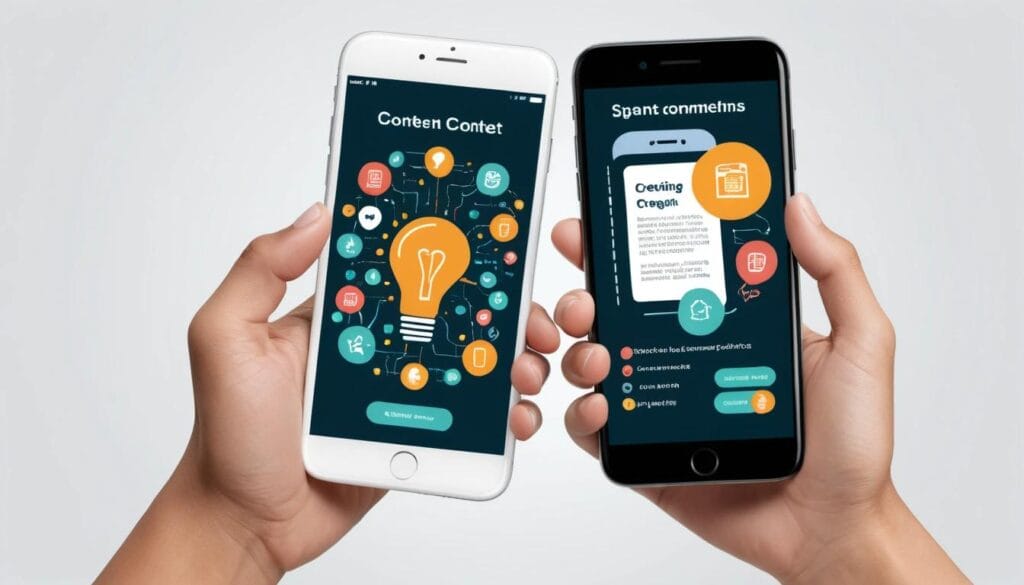In an age where consumer expectations are higher than ever, businesses are relentlessly seeking innovative ways to engage their audiences. Hyper-personalized marketing is reshaping this landscape, using artificial intelligence (AI) to tailor messages, products, and experiences to individual preferences and behaviors. In this blog post, we’ll explore the concept of hyper-personalized marketing, its benefits, and how AI is driving this evolution in consumer engagement.

What is Hyper-Personalized Marketing?
Hyper-personalized marketing goes beyond traditional personalization strategies by leveraging data to create highly customized experiences. Unlike one-size-fits-all marketing approaches, hyper-personalization focuses on individual customer needs, preferences, and behaviors, ensuring that each consumer feels uniquely valued. This approach utilizes data analytics, behavioral insights, and AI technologies to deliver messages and offerings tailored specifically to each consumer’s journey.
Key Components of Hyper-Personalized Marketing
- Data Collection: Hyper-personalization relies on extensive data collection methods. Brands gather data from various sources, including website interactions, social media engagement, purchase history, and customer feedback.
- Behavioral Insights: Analyzing consumer behaviors is crucial. Marketers use machine learning algorithms to interpret how customers interact with their brands, enabling them to predict future behavior and preferences.
- Real-time Engagement: Hyper-personalized marketing involves real-time engagement strategies. By using AI tools, businesses can respond instantly to consumer actions, delivering relevant content and offers precisely when the consumer needs them.
- Predictive Analytics: Predictive models help brands forecast consumer needs and preferences. With AI, businesses can anticipate trends and tailor marketing strategies accordingly.
The Role of AI in Hyper-Personalization
AI plays an instrumental role in the execution of hyper-personalized marketing strategies. Here are some ways AI is transforming consumer engagement:
1. Enhanced Data Processing
AI-driven tools can process vast amounts of data rapidly, extracting actionable insights more efficiently than human analysts could. This capability enables businesses to develop a comprehensive understanding of consumer behaviors and preferences.
2. Dynamic Content Creation
AI can automatically generate tailored content based on consumer data. For example, brands can use AI to curate personalized email campaigns, product recommendations, and social media content, enhancing relevance and engagement.
3. Automated Customer Interactions
Chatbots and AI-powered customer service agents enhance consumer experiences by providing immediate, personalized responses to inquiries. These tools use data from past interactions to ensure that each customer feels acknowledged and valued.
4. Targeted Advertising
AI algorithms help optimize advertising strategies by targeting specific consumer segments more effectively. This precision means that ads are shown to the most relevant audiences, increasing conversion rates and customer satisfaction.
Benefits of Hyper-Personalized Marketing
Implementing hyper-personalized marketing strategies offers numerous benefits for businesses and consumers alike:
1. Increased Customer Engagement
When consumers receive messages tailored to their preferences, they are more likely to engage with the content. This heightened engagement can lead to stronger customer relationships and loyalty.
2. Improved Conversion Rates
Hyper-personalized experiences significantly boost conversion rates. Consumers are more inclined to make a purchase when they receive relevant offers that align with their needs.
3. Enhanced Customer Satisfaction
Personalized experiences create a sense of connection and understanding between brands and consumers, leading to improved customer satisfaction and retention.
4. Greater Competitive Advantage
Brands that adopt hyper-personalized marketing strategies can outperform competitors who rely on generic marketing approaches. By prioritizing customer experience, they set themselves apart in increasingly crowded markets.
Challenges to Consider
While hyper-personalized marketing presents numerous advantages, it also comes with challenges:
1. Data Privacy Concerns
As brands collect and analyze extensive consumer data, concerns around privacy and data security continue to rise. Brands must navigate these concerns wisely while ensuring compliance with data protection regulations.
2. Complexity of Implementation
Implementing hyper-personalized marketing strategies requires sophisticated technology and expertise. Many companies may struggle to effectively harness AI and data analytics, requiring investment in talent and resources.
3. Balancing Personalization and Automation
While automation enhances efficiency, brands must also prioritize the human touch in their interactions. Striking the right balance between personalized experiences and automated responses is key to maintaining authentic connections.
Conclusion
Hyper-personalized marketing, driven by AI advancements, is revolutionizing how brands engage with consumers. By leveraging data and insights, businesses can create tailored experiences that resonate on a personal level. Although there are challenges to navigate, the rewards of enhanced engagement, improved conversion rates, and increased customer satisfaction make hyper-personalization an attractive strategy for brands looking to thrive in today’s competitive landscape. As technology continues to evolve, the future of consumer engagement promises to be even more dynamic and individualized, paving the way for deeper connections between brands and consumers.




Leave a Reply